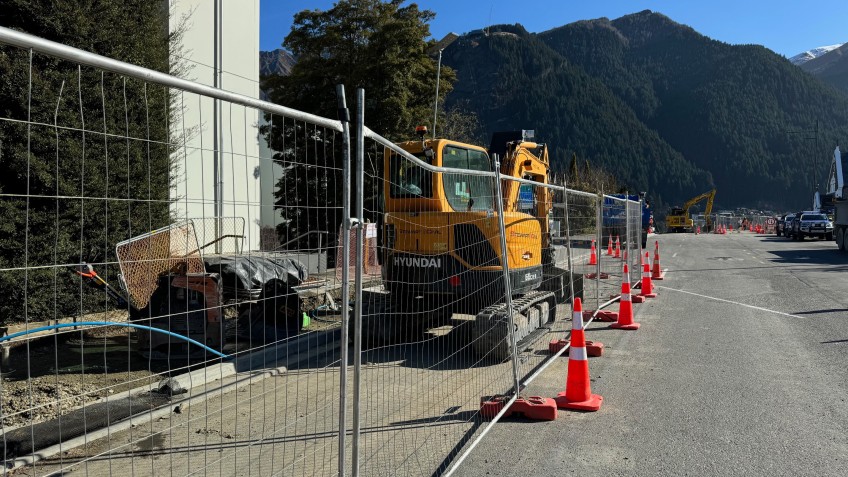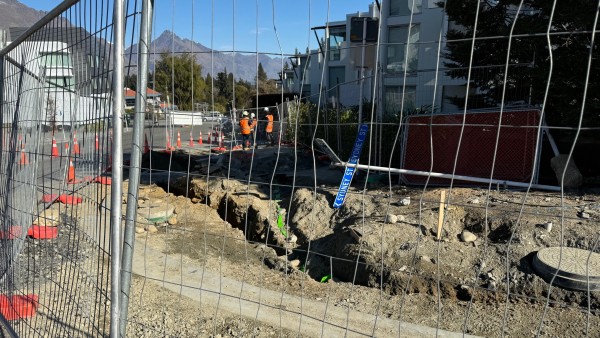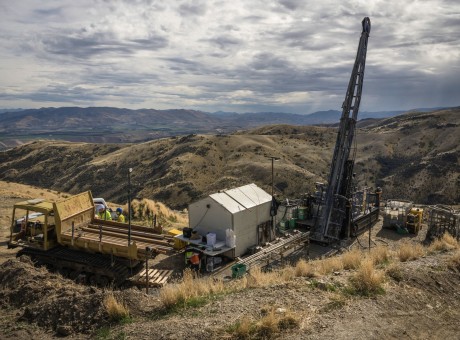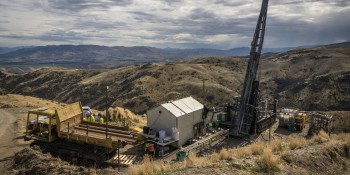Arterial road worker sacked after challenging asbestos danger

The Queenstown roading alliance is backing its safety protocols despite a whistleblower claiming he lost his job after challenging his boss on rules not being followed at a worksite where asbestos pipes were being removed.
The worker, who Crux has agreed not to name, says he was asked to act as a spotter for a digger working to expose asbestos pipes on Melbourne Street on Thursday.
He understood the plan was for another company to come through the following day to remove the old pipes.
The worker says he was new to the contracting company and had ungone several days of site inductions before being placed at the worksite, part of the Queenstown stage one arterial road project.
Pretty quickly, it felt like things went wrong.
"The operator, who was the foreman for the company that I was working for was excavating the ground and cracked the pipe, and said, 'oh, yep, that's asbestos'."
The worker says he was standing very close to it and that made him feel unsafe.
He says he had not been provided any additional safety gear to wear, including any face mask, in response to any asbestos risk.
"I was about a metre, two metres away from it..I wasn't too sure about health and safety, I'd heard that it was pretty dangerous stuff."
Then the operator covered the pipe back up with a layer of earth, but in doing so scraped the pipe's surface, the worker says.
"The dust was coming off the pipe and the wind was heading my way, so I was pretty concerned....that's pretty hazardous stuff right in front of my face."
A spokesperson for the Queenstown Lakes District Council, the lead agency for the project, has confirmed "redundant asbestos cement water pipes" have been removed as part of the arterial road project.
As described by the worker, the spokesperson says one contractor has been responsible for exposing the pipe and another, for their removal.
But the alliance is pushing back at any suggestion this work has been conducted in an unsafe manner.
"All contractors and alliance staff involved with this work have worked in accordance with the alliance’s asbestos permit and with appropriate health and safety measures in place," the spokesperson says.
"The managed process has included an excavator separating each pipe length from the adjacent one and lifting it onto polythene. The pipes are then wrapped before they’re transported to a controlled landfill location."
In response to questions on the incident from Crux, alliance managers have had discussions with the teams involved, and the spokesperson says the talks have "raised no safety concerns" and contractors have reported that no staff had been asked to leave the site.

Work continues on Queenstown's $128 million arterial road.
But the whistleblower says after day one on the site, when he returned to the company's yard, he was asked into the boss' office to talk about how the day had gone.
"He says, 'you're not the right guy for this job...and we're going to have to let you go'."
The worker says over several days of job orientation the boss repeatedly told him "not to talk to anybody" about the work he would be doing, mentioning Crux by name.
The council spokesperson says it is common practice within the construction industry and business in general that staff on site are not permitted to speak to media unless authorised to do do.
"It covers all media and is not specific to Crux."
Crux has published a series of stories documenting mishaps, mistakes, and miscommunications on the pricey arterial road project.
WorkSafe has been approached for comment but no response had been received by publication deadline.
An industry expert spoken to by Crux says they would have expected any spotter involved in exposing asbestos water pipes to have been wearing disposable overalls and a face mask, and the pipe only to be exposed to 100 millimetres before letting more delicate vacuuming equipment take over from a digger.
Stage one of the arterial road project is being delivered by Kā Huanui a Tāhuna, comprising the QLDC, the New Zealand Transport Agency, Beca, Downer, Fulton Hogan and WSP.
Read more:
Arterial road whistleblower claims cover ups, incompetence and QLDC tantrums
Equipment, not weather, now blamed for arterial surface failure
Arterial road run off shuts Queenstown's Ballarat Street
Tourists being blamed for $2m of Queenstown's arterial road blowout
Pedestrian overbridge axed as arterial road cost cutting continues
QLDC managers heavily edited 'independent' review of roading alliance
Main image: Contractors have removed old asbestos water pipes on Melbourne Street as part of the Queenstown arterial road project.

























